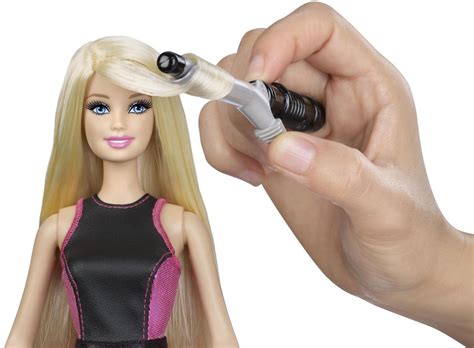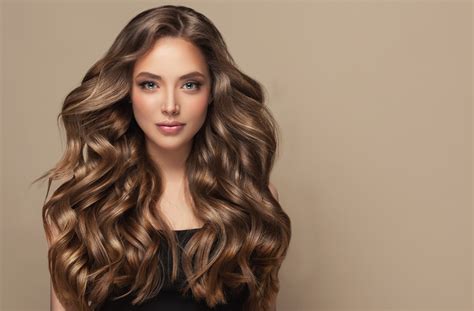Clip-in hair extensions offer an instant and versatile way to add volume, length, or color to your hair without the hassle of permanent treatments. With a wide range of styles, lengths, and textures available, they cater to every hair type and desire. This guide will delve into everything you need to know about clip-in extensions, from choosing the right type to applying them like a pro in 5 effortless steps.

- Instant transformation: Clip-in extensions can instantly add volume, length, or color to your hair, creating a dramatic change in minutes.
- Temporary change: Unlike permanent extensions, clip-ins are removable, allowing you to switch up your hair look without any long-term commitment.
- Versatile styling: Clip-ins can be styled using heat tools, allowing you to create waves, curls, or sleek straight looks.
- Damage-free: Clip-ins do not require any heat or chemicals to apply, minimizing damage to your natural hair.
- Affordable option: Compared to other hair extension methods, clip-ins are relatively affordable, making them a cost-effective way to enhance your hair.
1. Length and Volume
The length and volume of the extensions you choose will depend on your desired look. If you want subtle volume, opt for extensions that are slightly longer than your natural hair. For a more dramatic look, choose extensions that are significantly longer and thicker.
2. Texture
Match the texture of the extensions to your natural hair for a seamless blend. If you have fine hair, choose extensions with a similar texture to avoid looking bulky. If you have thick hair, you can opt for extensions with a slightly coarser texture to add extra volume.
3. Color
Choose extensions that closely match your natural hair color for a natural-looking transformation. If you want to add a pop of color, you can opt for extensions in a slightly different shade or even a bright accent.
4. Clip Type
There are two main types of clip-ins: pressure clips and snap-in clips. Pressure clips are easy to apply, but they may not be suitable for fine hair as they can create tension. Snap-in clips are more secure and less damaging, but they require more practice to apply.
1. Prepare Your Hair
- Brush your hair to remove any tangles or knots.
- Divide your hair into sections horizontally, starting from the bottom layer.
- Secure the top layers with hair clips to keep them out of the way.
2. Choose Clips for Each Section
- Determine the number of clips you need for each section based on the thickness of your hair.
- For fine hair, 1-2 clips per section may be sufficient.
- For thicker hair, you may need 3-4 clips per section.
3. Apply the Extension Clips
- Align the clips with the roots of your hair and close them firmly.
- Ensure that the extensions are securely attached and do not slip or slide.
4. Blend Seamlessly
- Use a brush or comb to gently blend the extensions with your natural hair.
- If needed, use a hairspray to hold the extensions in place and reduce flyaways.
5. Style and Enjoy
- Style the extensions using heat tools to create your desired look.
- Experiment with different hairstyles to showcase the versatility of your clip-ins.
- Use them sparingly: Overusing clip-ins can damage your hair and create an unnatural look.
- Remove them before bed: Clip-ins can be uncomfortable to sleep in and may damage your hair if left in overnight.
- Protect them from heat: Use heat protectant spray when using heat tools on your clip-ins to minimize damage.
- Store them properly: Store your clip-ins in a cool, dry place to prevent heat damage or moisture buildup.
- Get professional help: If you are not confident in applying clip-ins yourself, consider visiting a professional hairstylist.
Clip-in extensions allow you to experiment with different hair looks without making a permanent commitment. They are an excellent option for those who want to:
- Enhance their natural hair with extra volume or length
- Add a touch of color or highlight to their hair
- Create special occasion hairstyles without the hassle of permanent extensions
- Protect their natural hair from damage caused by heat or chemical treatments
“Extensionality”: The ability of clip-in extensions to create endless styling possibilities.
Here are some innovative ways to use clip-in extensions:
- Half-up, half-down hairstyles: Add extensions to the bottom half of your hair for a volumized half-up style.
- Braided ponytail: Use clip-ins to create a thicker, more voluminous braided ponytail.
- Faux bangs: Clip-in bangs can instantly create a new look without the commitment of cutting your hair.
- Temporary highlights: Use clip-in extensions in a different color to add subtle or bold highlights to your hair.
- Maintenance-free updo: Clip-in extensions can be used to create an updo that requires minimal maintenance and can be taken down easily.
Table 1: Types of Clip-in Extensions
| Extension Type | Application Method | Durability | Care |
|---|---|---|---|
| Pressure Clips | Easy to apply and remove | Less durable | May damage fine hair |
| Snap-in Clips | More secure and less damaging | More durable | Require more practice to apply |
Table 2: Clip-in Extension Lengths and Volumes
| Length (inches) | Volume |
|---|---|
| 14-16 | Subtle volume |
| 18-20 | Moderate volume |
| 22-24 | Dramatic volume |
| 26+ | Extra long |
Table 3: Clip-in Extension Textures
| Texture | Description |
|---|---|
| Straight | Smooth and sleek |
| Wavy | Loose waves |
| Curly | Tight curls |
| Coily | Spiraled curls |
Table 4: Benefits of Using Hair Clip in Extensions
| Benefit | Description |
|---|---|
| Instant transformation | Add volume, length, or color in minutes |
| Temporary change | Removable, allowing for flexibility |
| Versatile styling | Style them using heat tools |
| Damage-free | Minimal impact on natural hair |
| Affordable option | Cost-effective compared to other extension methods |
